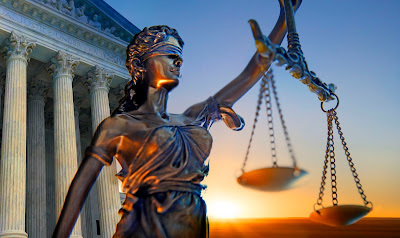SCOTUS to Decide Anonymous Tipster Stops
Tomorrow, at 10:00am, the United States Supreme Court will hear oral argument in a case that I believe will have a significant impact for those of us who regularly practice in trial courts. In Navarette v California, Docket No. 12-9490, the Court is presented with this question: Does the Fourth Amendment require an officer who receives an anonymous tip regarding a drunken or reckless driver to corroborate dangerous driving before stopping the vehicle?
Lorenzo and Jose Navarette were stopped by officers from the California Highway Patrol after the CHP received a tip from another agency who had gotten a 911 call from a motorist who called to say a silver pickup truck had just run someone off the road. The CHP stopped the truck 19 minutes after the call came in and after following the truck for five miles, observing no illegal or suspicious driving. The officers quickly detected the odor of marijuana coming from the interior of the truck and searched it, finding a large quantity of marijuana and paraphernalia indicative of an intent to deliver. Both Navarettes were charged with possession with intent to deliver marijuana under California state law. Their motions to suppress the evidence, based on the invalidity of the stop, were denied.
The pair plead guilty to the offense and were each sentenced to 36 months probation and the first 90 days in the Mendocino County Jail. California apparently allows the appeal of plea-based convictions, and the California Court of Appeal affirmed the convictions, finding that officers, acting on an anonymous tip, need not corroborate any of the details of the call in order to justify the stop of the offending vehicle. The California Supreme Court denied Navarettes' appeal without comment.
The Supreme Court's ruling on this issue will be significant to Michigan practitioners. As many of you know, our Court of Appeals ruled on this identical issue in People v Barbarich, 291 Mich App 468; 807 NW2d 56 (2011), holding, in an opinion written by Judge Kirsten Frank Kelly and joined by then Judge Brian Zahra, "The tip provided sufficient information to accurately identify the vehicle and to create an
inference that a crime or civil infraction had occurred; and, the tip was also sufficiently reliable, based on the woman’s contemporaneous observations. Under the totality of the circumstances, Bammarito (the arresting officer) had a reasonable articulable suspicion that justified an investigatory stop of defendant’s vehicle. The circuit court erred by concluding otherwise." In Barbarich, an anonymous woman had pulled up to the officer's car on St. Patrick's Day and mouthed the words, "He almost hit me," and pointed to a red truck that was pulling out of a bar parking lot. The officer never obtained any identifying information from the woman, and proceeded to get behind the red truck and stop it based only upon the officer's encounter with the unidentified woman. Barbarich was convicted of operating while intoxicated. Judge Elizabeth Gleicher, on the other hand, dissented, finding that the anonymous tip was "utterly devoid of any objective or specific facts" to justify the stop.
This interesting issue should now, finally, be decided by our highest court. Tomorrow's argument will be recorded and a link to the completed recording will be available at www.scotusblog.com. If you are looking for any assistance on this issue, links to all of the briefs filed before the USSC can be found by clicking here.
Lorenzo and Jose Navarette were stopped by officers from the California Highway Patrol after the CHP received a tip from another agency who had gotten a 911 call from a motorist who called to say a silver pickup truck had just run someone off the road. The CHP stopped the truck 19 minutes after the call came in and after following the truck for five miles, observing no illegal or suspicious driving. The officers quickly detected the odor of marijuana coming from the interior of the truck and searched it, finding a large quantity of marijuana and paraphernalia indicative of an intent to deliver. Both Navarettes were charged with possession with intent to deliver marijuana under California state law. Their motions to suppress the evidence, based on the invalidity of the stop, were denied.
The pair plead guilty to the offense and were each sentenced to 36 months probation and the first 90 days in the Mendocino County Jail. California apparently allows the appeal of plea-based convictions, and the California Court of Appeal affirmed the convictions, finding that officers, acting on an anonymous tip, need not corroborate any of the details of the call in order to justify the stop of the offending vehicle. The California Supreme Court denied Navarettes' appeal without comment.
The Supreme Court's ruling on this issue will be significant to Michigan practitioners. As many of you know, our Court of Appeals ruled on this identical issue in People v Barbarich, 291 Mich App 468; 807 NW2d 56 (2011), holding, in an opinion written by Judge Kirsten Frank Kelly and joined by then Judge Brian Zahra, "The tip provided sufficient information to accurately identify the vehicle and to create an
inference that a crime or civil infraction had occurred; and, the tip was also sufficiently reliable, based on the woman’s contemporaneous observations. Under the totality of the circumstances, Bammarito (the arresting officer) had a reasonable articulable suspicion that justified an investigatory stop of defendant’s vehicle. The circuit court erred by concluding otherwise." In Barbarich, an anonymous woman had pulled up to the officer's car on St. Patrick's Day and mouthed the words, "He almost hit me," and pointed to a red truck that was pulling out of a bar parking lot. The officer never obtained any identifying information from the woman, and proceeded to get behind the red truck and stop it based only upon the officer's encounter with the unidentified woman. Barbarich was convicted of operating while intoxicated. Judge Elizabeth Gleicher, on the other hand, dissented, finding that the anonymous tip was "utterly devoid of any objective or specific facts" to justify the stop.
This interesting issue should now, finally, be decided by our highest court. Tomorrow's argument will be recorded and a link to the completed recording will be available at www.scotusblog.com. If you are looking for any assistance on this issue, links to all of the briefs filed before the USSC can be found by clicking here.




Comments
Post a Comment